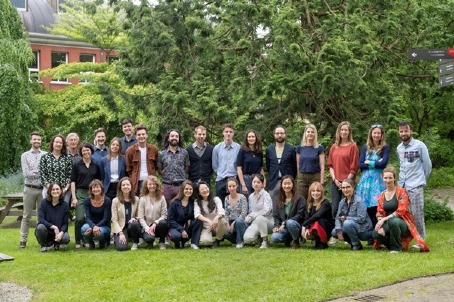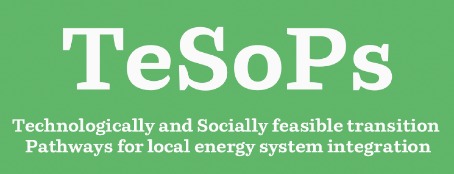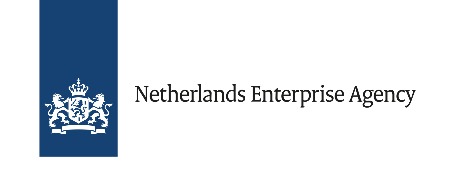The Next STEP

‘The Next STEP - Summer School on Theories in Environmental Psychology’ will bring together 45 PhD students in the field of environmental psychology and related sciences to help bridge the gap between environmental psychology theory and practical applications.
Through a series of workshops, group exercises and guest lectures by prominent experts in the field, our summer school empowers participants with knowledge and tools needed to effectively address pressing environmental issues.
Participants will get to apply psychological theory to practical problems, gain expert insights, network with fellow PhD students and professionals who share their passion for environmental psychology.
The 45 PhD students will be distributed into 5 groups; with 2 senior supervisors and a sponsoring organisation per group. The supervisors will be internal as well as external researchers, thus from other universities and/or faculties.
Sponsoring organisations will provide the PhD students with a real life problem that their organisation has faced or will be facing. The PhD students will work, under the supervision of senior researchers, on the problem throughout the week to come up with an intervention plan and provide theory-based practical solutions for the organisation.
Read more about the Environmental Psychology Research Group in Groningen .
Practical information
|
Dates
|
24 - 28 June 2024
|
|
Location
|
Groningen, the Netherlands
|
|
Level
|
PhD |
|
Fees
(including coffee, lunches, drinks Monday, scavenger hunt/ city tour Wednesday, dinner thursday, accommodation & breakfast)
|
€ 400 |
|
Academic coordinators
|
Ellen van der Werff, BSS |
|
Contact |
nextstep rug.nl |
Requirements
This summer school is designed for PhD students in environmental psychology and related fields. It is required to have a PhD position and motivation to theorise and engage with other PhDs, researchers and stakeholders.
It is expected that the participants have a sufficient command of the English language to actively participate in the discussions and to present their own work in English.
Course schedule
Preliminary course schedule

Learning outcomes
After this course, the PhD Students will be able to:
-
Conduct a systematic problem analysis of a practical problem (analyze);
-
Decide upon and a conduct a causal analysis of factors influencing the problem based on (interdisciplinary) theoretical knowledge gained in their previous education/research as well as theoretical literature on the specific problem as suggested by the supervisors of their group (analyze/apply);
-
Develop and present a theory-based and evidence-based intervention aiming to address this problem (apply/create);
-
Develop and present a monitoring and evaluation plan to test the effectiveness of an intervention (apply/create)
Workload
-
Preparation: 5 hours
-
Lectures: 5 hours
-
Presentation: 5 hours
-
Group work: 25 hours
Upon successful completion of the programme, the Summer School offers a Certificate of Attendance that mentions the workload of 40 hours (28 hours corresponds to 1 ECTS). Students can apply for recognition of these credits to the relevant authorities in their home institutions, therefore the final decision on awarding credits is at the discretion of their home institutions. We will be happy to provide any necessary information that might be requested in addition to the certificate of attendance.
Scholarship
Scholarship
In an effort to ensure the summer school is as inclusive as possible, we are providing several scholarships to students to make it financially possible for them to attend. If you are in genuine need of a scholarship in order to afford to join the summer school, please indicate so in the application form.
Groups
|
Sponsor |
Preliminary topic |
|
RIVM |
How can behavioural science knowledge be better included in (the implementation of) climate policy. |
|
RVO |
A behavioral approach to small, visible energy savings measures for micro SME’s |
|
Provincie Groningen |
Cycling in suburban/rural Groningen |
|
TeSoPs |
Socially (and technologically) feasible transition pathways for local energy system integration |
More information may be added soon.
Application procedure
To apply, kindly fill out the online application form. Please note that you will be asked to upload the following documents:
-
Curriculum Vitae (max. 2 pages)
-
Motivation letter, clearly stating why you want to join this summer school, what you will bring to the school and what you hope to learn (max. 150 words)
The deadline for application is 10 March 2024. Selected applicants will be informed by 31 March 2024.


Sponsoring partners




| Last modified: | 14 November 2024 4.34 p.m. |
